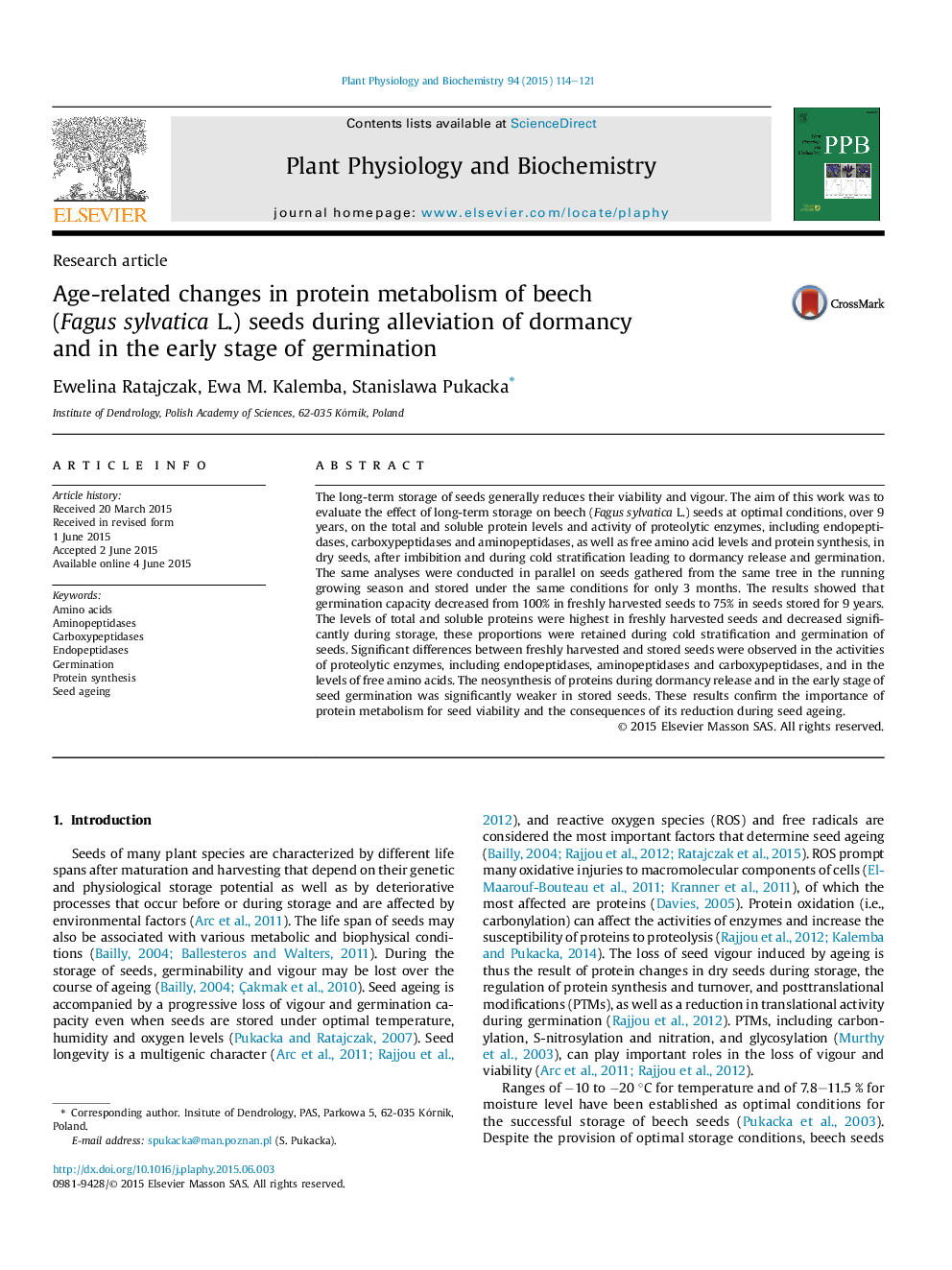| Article ID | Journal | Published Year | Pages | File Type |
|---|---|---|---|---|
| 2014915 | Plant Physiology and Biochemistry | 2015 | 8 Pages |
Abstract
The long-term storage of seeds generally reduces their viability and vigour. The aim of this work was to evaluate the effect of long-term storage on beech (Fagus sylvatica L.) seeds at optimal conditions, over 9 years, on the total and soluble protein levels and activity of proteolytic enzymes, including endopeptidases, carboxypeptidases and aminopeptidases, as well as free amino acid levels and protein synthesis, in dry seeds, after imbibition and during cold stratification leading to dormancy release and germination. The same analyses were conducted in parallel on seeds gathered from the same tree in the running growing season and stored under the same conditions for only 3 months. The results showed that germination capacity decreased from 100% in freshly harvested seeds to 75% in seeds stored for 9 years. The levels of total and soluble proteins were highest in freshly harvested seeds and decreased significantly during storage, these proportions were retained during cold stratification and germination of seeds. Significant differences between freshly harvested and stored seeds were observed in the activities of proteolytic enzymes, including endopeptidases, aminopeptidases and carboxypeptidases, and in the levels of free amino acids. The neosynthesis of proteins during dormancy release and in the early stage of seed germination was significantly weaker in stored seeds. These results confirm the importance of protein metabolism for seed viability and the consequences of its reduction during seed ageing.
Keywords
Related Topics
Life Sciences
Agricultural and Biological Sciences
Plant Science
Authors
Ewelina Ratajczak, Ewa M. Kalemba, Stanislawa Pukacka,
